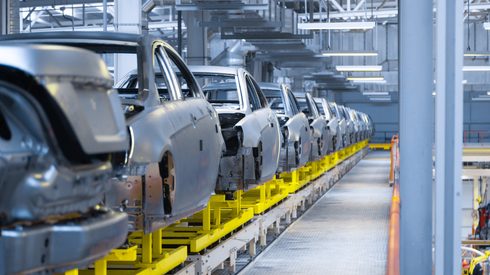The European Union has pledged to cut net carbon emissions by 55% by 2030, and this June its parliament proposed some new regulations as part of the “Fit for 55 in 2030” package.
These include changes to the Emissions Trading System (ETS) and a new levy on imports under the Carbon Border Adjustment Mechanism (CBAM) to prevent carbon leakage.
CBAM seeks to mitigate the risk of carbon leakage – carbon emissions generated in producing goods in countries not covered by the ETS – by imposing a carbon price on imports of some high-carbon goods from outside the EU, including iron, steel and aluminium.
According to a European Parliament briefing in July, the regulations would require EU importers, from 2026 onward, to purchase certificates equal in value to the weekly EU carbon price for any imports. This requirement will initially apply to five emissions-intensive sectors: iron and steel; aluminium; cement; fertilizers; and electricity.
The current system for mitigating carbon output originally involved the distribution of free and auctioned carbon emissions allocations to Europe’s industrial sectors. Those allocations can be offset against any carbon produced and led to the current carbon trading system that determines carbon prices.
In a joint statement on October 26, representatives from the five emissions-intensive sectors said that while the ETS and CBAM were key elements of the regulatory framework necessary for the transition towards climate neutrality in their industries, the targets must able to be reached in a “sustainable and socially fair manner,”, particularly in light of the challenges of soaring energy costs, high inflation, rising carbon prices and raw materials shortages.
As of October 26, they added, those challenges had led to “unprecedented” idling of capacities – curtailing 50% of primary aluminium production and around 10% of steel output.
They also warned that the regulations should also take into account the impact on each sector’s global competitiveness and trading patterns.
In light of ongoing negotiations over the ETS and CBAM, the statement set out what those involved regard as the essential elements for the EU to consider, which included a cautious approach to phasing out of the free carbon emissions allocations because the CBAM is a “new tool” that needs to be “properly” and “gradually” tested.
The sector representatives criticized the transitional phase-out timeframe – between 2023 and 2025 – as being “not a real test period” because importers will not pay the CBAM levy during that time and it could expose EU industries to higher carbon costs while they face rising energy costs and other challenges, thereby potentially reducing their investments in future decarbonization projects.
“Our sectors believe that the CBAM – with actual payments by importers reflecting the price paid by EU domestic producers – should complement free allocation at full [carbon price] benchmark levels until its effectiveness is proven,” the joint statement said.
“Should such a solution not be possible, our sectors urge negotiators to support the European Council proposal establishing the phasing out of free allowances between 2026 and 2035, with a slower reduction pace until 2030,” they added.





